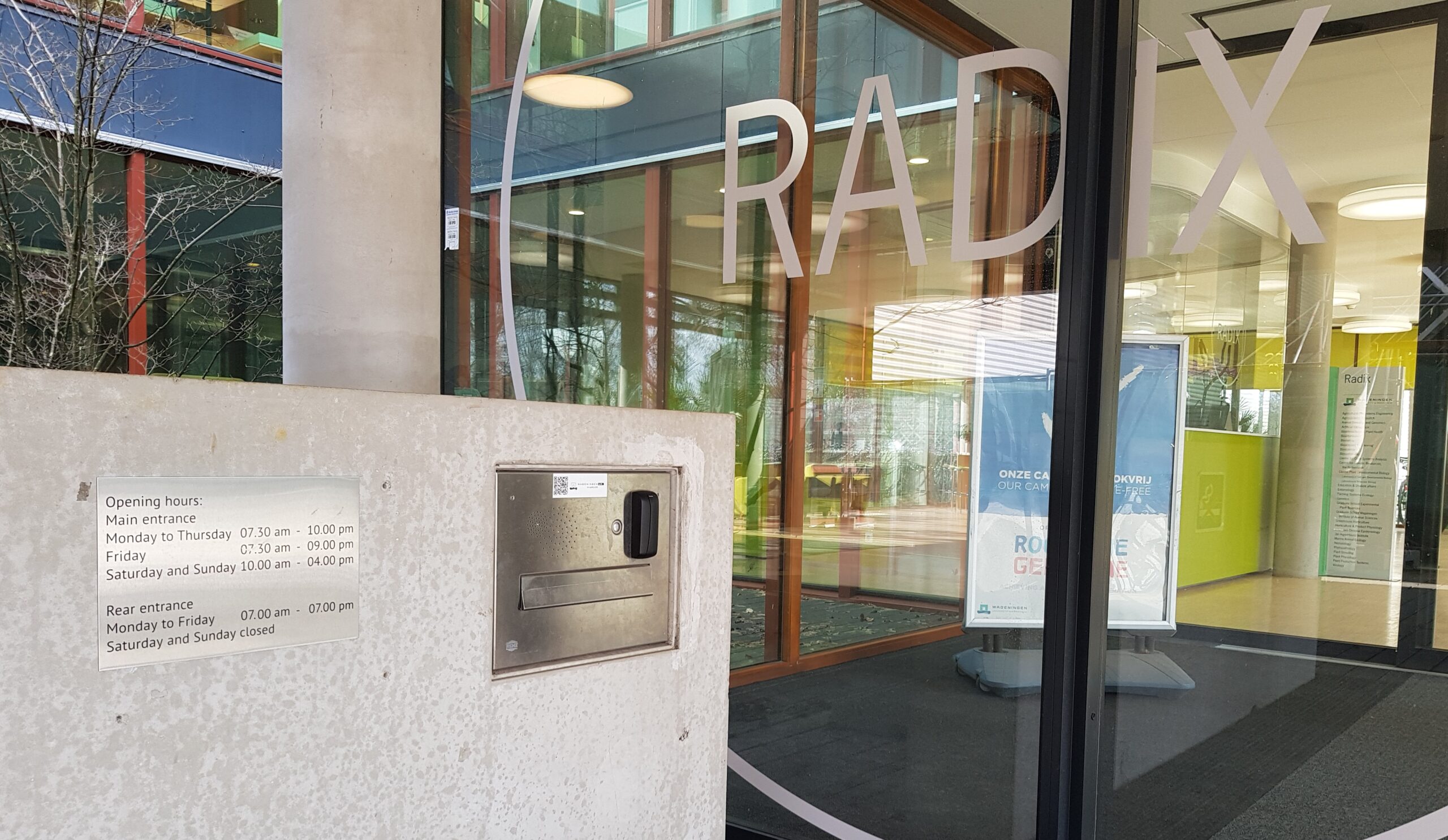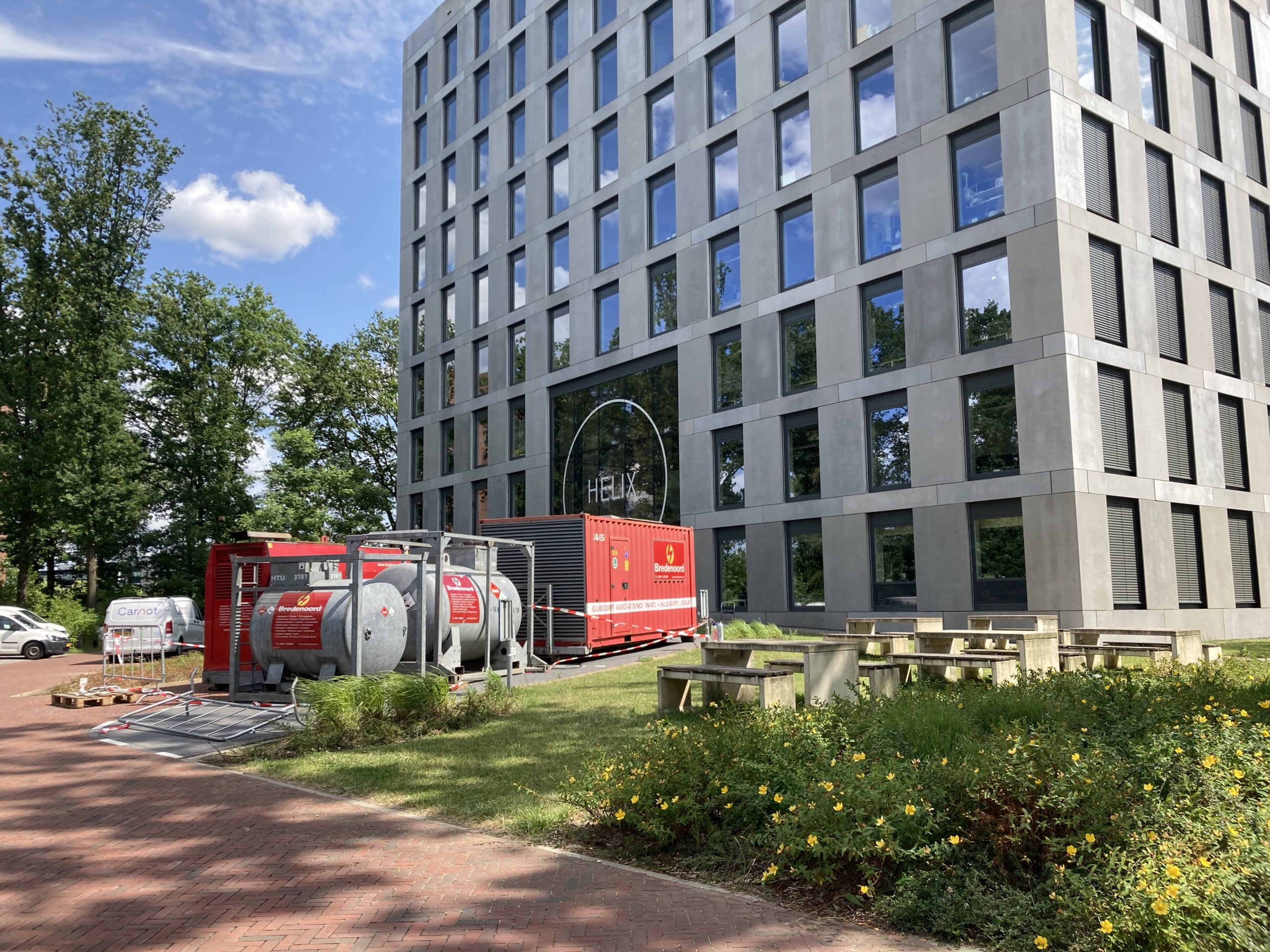Most buildings on the campus will close earlier in the evenings and weekends as of next month. With considerable impact on scientific experiments, as a result, many Radix and Helix users fear. A petition to reconsider the decision was signed 400 times already.
Closing early is an austerity measure. All WUR departments must cut their expenses by 5 per cent this year. Buildings such as Helix and Radix remain open until ten p.m. now. As of next month, the buildings will close at eight. The buildings are open for four hours at the weekends. Helix will reduce its opening hours by no less than six hours on the weekends, and Radix will cut opening times by two hours.
Too short
Those who signed the petition argue that the four hours at the weekend is far too little. ‘If you are conducting tests that require readings to be taken at set times, four hours is too short. Moreover, you need time to set up, and experiments sometimes simply take longer because it’s all new’, says one of the signers, who chooses to remain anonymous. ‘This limits the number of experiments you can do.’
Exceptions can be made, but whether these require a fee is unclear. ‘This is likely to occur at such frequency that it makes more sense to simply keep the building open.’ The signers point out that other universities have buildings that are open 24/7 with unstaffed front desks. ‘Why can’t Wageningen do the same?’
Experiments are planned months ahead of time, and this measure comes into effect on 1 March
Signer petition
The initiators behind the petition also argue that the measure will impact the use of equipment. ‘Some popular machines are fully booked during business hours. Will this remain an option, or will the machines be used less and, hence, cost more per hour?’ According to the spokesperson, the lack of clarity on this issue shows the plan is poorly thought out.
Not discussed
Signers also criticise the starting date. ‘Experiments are planned months ahead of time, and this measure comes into effect on 1 March.’ Moreover, the measure has not been discussed with the researchers. The petition was submitted (by mail) to the directors of the Agrotechnology & Food Sciences Group (AFSG) and the Plant Sciences Group (PSG). They have yet to comment.

 Photo Resource
Photo Resource 
